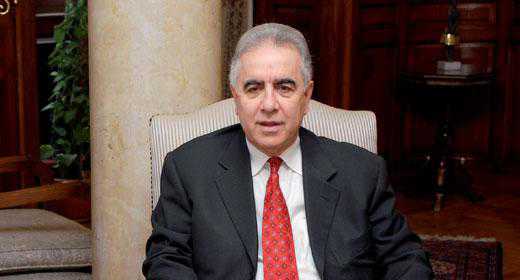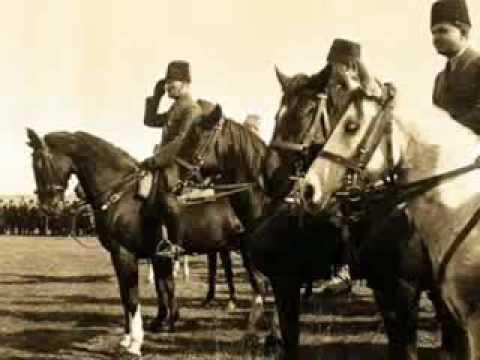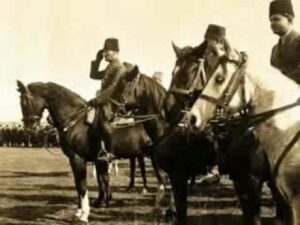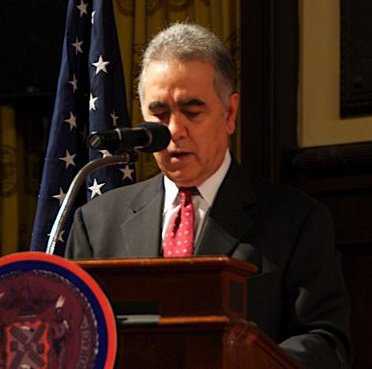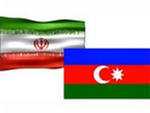One of the first things my classmates and I learned at the United States Military Academy at West Point over fifty years ago was taken from an ancient Chinese book called The Art of War by Sun Tzu. “If you know your enemy and know yourself,” he wrote, “you can win a hundred battles without a loss.” The next and equally important thing was “to treat your men as you would treat your sons.”
The incomparable Mustafa Kemal Ataturk knew this in all the dimensions and theaters of strategic thinking: military, political, and social. And he knew that winning the war of independence was only the beginning. Centuries of dictators and ignorance and backwardness had deeply clutching cultural roots, roots that strangled a peoples development. He knew that the dark-minded babblers of superstitious mumbo jumbo did not vanish with the birth of the new republic. And he knew that they and their offspring would long outlive him. He foresaw literally all the dangers for the young nation. He knew its enemies completely.
19 May 1919 was an ending and a beginning. It marks the first day of the ending of centuries of repression and dark-minded ignorance. It also marks the first day of the Turkish war of independence. Like a titan, the 38 year old Mustafa Kemal rose from the sea at Samsun and struck a mighty blow for freedom and national sovereignty. The day signifies the eventual nullification and rejection of hundreds of years of “sharia” governance. It is easy to understand why this holiday is unpopular with this present government that so fixedly stares backward at the “glories” of repressive Ottoman rule. Indeed a prime minister so in love with one book that he never mentions another, a head of government who espouses, caliph-like, that already impoverished families should have even more children (five is now the magic number). Surely this man who never smiles must despise this day, 19 May, a day that celebrates enlightenment, youthful energy, and the genius of a uniquely gifted man, Mustafa Kemal Ataturk.
Mustafa Kemal knew of men like this. That’s why 19 May celebrates the vitality of youth. It shouts out loud that we are the vigorous heirs of a democratic, secular republic, one founded on the enlightened principles of scientific reasoning, not on religious incantations and stale thought. We are a vital, young-minded, open-minded force, brimming with energy. Like him, a man who swam in the same sea with the people at Florya, rowed boats, swung on swings, danced skillfully, a man who rode horses incomparably. When have you seen a politician do any of these things? His so-called advisors put this Turkish prime minister on a horse once. The result? An unforgettably embarrassing, dusty hard landing. Such antics are a measure of how the nation has fallen through the years.
Everything has changed utterly. Now, everything has been revealed. Mustafa Kemal warned of it years ago. The corruptions he spoke about— and Turkish youth have memorized—have all come to pass. Turkish youth has always been abused, beaten, jailed, tortured, hung, regardless of the ruling party. The army has been an instrument of the west, a maker of coups on American demand, like the “our boys did it” of Evren’s tragic fiasco in 1980. The political powers have always collaborated with outsiders, again mostly America. And the Turkish people have always stood alone, awaiting the crumbs.
That’s why Mustafa Kemal left the protection of the nation not to the Turkish Army nor to the Turkish politicians but to the young nation’s youth, in his words, “the children of the Turkish future.” And that is why 19 May exists, the day he came from the sea to Samsun. He was 38 years old, already a military hero. He himself was the first child of the Turkish future. And thus began the long, brutal struggle for national independence. Ataturk later said that he had felt reborn on 19 May. It later became his official birthday, such was the measure of his devotion.
He knew that the new nation needed “an army of knowledge” more than an army. He knew that politicians could easily become “today’s men” betraying the public trust by pursuing power and wealth. That’s why he entrusted the new Turkish nation to people like him, young, vital, honest people uncontaminated by the old ways. He knew his friends too. Turkish youth, idealistic and open-minded, it does not run after benefits, he said. It seeks the good, the genuine, the true. He knew that the nation’s youth would be “tomorrow’s men” seeking the long-term mutual good over short-term convenience. Ataturk knew this and so much more. He had seen his young people die by the thousands for their country. He knew their courage, their collective strength of character, their devotion to their new country. And he knew that they and their children’s children would protect the great victory over the enemy of darkness, ignorance and submission. And he would protect his people, his youth, his sons and daughters, by giving to these same sons and daughters a profound responsibility: the guardianship of the democratic, secular Republic of Turkey. A grand, idealistic idea. Except the politicians and the military always intervened. They knew better, they said. And today we see what they knew.
19 May is a day that belongs to the youthful heirs of the secular revolution, not to the government. It is a celebration of their responsibility to protect the republic from all enemies, both foreign and domestic. It is a vitally important day. As Ataturk said at the Sivas Congress in September 1919: “Youth, all the hope and future of the fatherland depend on you, and the energy of the young generation. Our motto is one and unchangeable: Independence or Death!” 19 May is such a day, a day of remembrance and recommitment. It is a day for us all to be reborn.
And that is precisely why the government seeks to eliminate this vital day of celebration and reaffirmation. It has divided it (for now) into three separate celebrations hoping that such division will ultimately result in extermination. In January, it banned the nationwide use of stadiums for 19 May ceremonies claiming that it might be too cold for the children. Imagine it being too cold in May for the true heirs and defenders of the republic. Maybe the overweight, balding, grey-headed politicians will get chilled in May. Let them stay home and watch on television. Let these old men remember that Ataturk slept on a rock before the battle of Dumlupinar. Anyway, why should Turkish youth be confined to puny stadiums when they own the entire country? Such nonsense. But of course a holiday dedicated to the victory over the western imperialistic powers must prove embarrassing to today’s Turkey whose government and army aid and abet the very same western imperialistic powers in their oil-based wars under the false claim of advancing democracy. As Ataturk well knew, the deceit of imperialists knows no limit.
Like Ataturk, Turkish youth knows its enemy. All this was foreseen. Recite again what you young people know so well, Ataturk’s Speech to the Turkish Youth. “Those in power may be found in treachery and may even have united their own interests with the desires of the invaders.” So consider conditions today. Consider the politics of chaos and shock. Precious forests and rivers destroyed. Mountains exploded. Urban air reeking with auto emissions and coal smoke. Beaches and shorelines raped for tourist development. Labor unions bludgeoned to submission. Culture ignored. The arts abased. Artists abused. Dramatic theater collapsed. A brutal police force forever attacking the citizens with pepper gas, clubs, water cannons, and now electromagnetic ray weapons courtesy of America’s Raytheon Corporation; the USA is such a generous, freedom-loving country. The thoroughly disreputable Turkish judicial system where electronic eavesdropping, forgeries, secret witnesses, tampered evidence, and political meddling pollute the law. Consider further the rampant jailing of all opposed to this socio-political nightmare. The purge and collapse of the army, an army whose senior leadership confessed that it could no longer protect its troops, and then ran away. The de facto collapse of the so-called opposition party who ineptly and pathetically renders abject resistance, thus collaborating in the demise of the secular state, while maintaining their benefits going through the motions of employment for a fascist parliament.
All this is why 19 May is so important. As Ataturk said, it’s a matter of independence or death! And in a nation where 50% of the population is under the age of 30, where is its political representation? Isn’t it time to give a true, powerful, organized and distinctive political voice to the nation’s youth?
And it is great to know that youth in Turkey is not alone. The Turkish Youth Union (Türkiye Gençlik Birliği) has organized an international 19 May celebration. Through its efforts, thousands of young people (of all ages) from over 50 countries will converge on Istanbul for three days, May 17-19. There will be an Anti-Imperialist Youth Forum, a performance festival concert, and on 19 May a demonstration at Beyoğlu Tünel Meydanı in İstanbul . Please see its VIVA 19 MAYIS website for details at
It is well that these young people should come. Youth is in danger all the over the world. A recent report from UNICEF highlights this growing catastrophe among adolescents, defined as being those between 10-19 years old.
- 71 million children of lower secondary school age are not in school, particularly girls. Turkey’s latest educational fiasco regarding the government’s religious education initiative virtually assures that young Turkish girls will fall further behind educationally.
- Unemployment is rising. Overall education levels are falling.
- 1.4 million adolescents die each year from road traffic accidents and other violence such as suicide.
- 2.2 million adolescents, 60% of whom are girls, live with HIV.
- More than one third of the women in the developing world were married before reaching the age of eighteen. This increases the risk of domestic violence. And of course, such marriages frequently result in early childbirth, the leading killer of adolescent girls in Africa.
And in such a world Saudi Arabia’s Grand Mufti Abdul-Aziz Al al-Sheikh supports marriage for 10 year old girls. No problem, he says, “Good upbringing makes a girl ready to perform all marital duties at that age.” Such are the ignoramuses and religious pedophiles that imperil our young people. The grand mufti should be in prison rather than a mosque. But who will put him there, oil being so very important?
Ataturk, who called everyone “kid” (coçuk), was once asked what is “youth.” He replied that it has nothing to do with age. It’s about idealism, he said, being open to revolutionary changes, and then passing those changes to future generations. It’s about being followers of knowledge and science. A seventy year old idealist is young, he said, while a twenty year old closed-minded fanatic is old-aged.
19 May honors Turkish youth. It reaffirms its importance as the nation’s most important asset. It reaffirms the victory of enlightenment over the dark doctrines of orthodoxy and submission. And it honors the great, noble work of the forever-young Mustafa Kemal Ataturk, a man of epic accomplishment. A man who, like the mythic Ulysses, was destined, in the words of the poet Alfred Tennyson,
To follow knowledge like a sinking star
Beyond the utmost bound of human thought…
To strive, to seek, to find, and not to yield.
May the inexhaustible energy of youth follow the same star that enlightens the heavens and the earth and bring better days to this suffering world.
YAŞASIN ON DOKUZ MAYIS!
YAŞASIN Türkiye Gençlik Birliği!
YAŞASIN Mustafa Kemal!
Cem Ryan
11 May 2012

